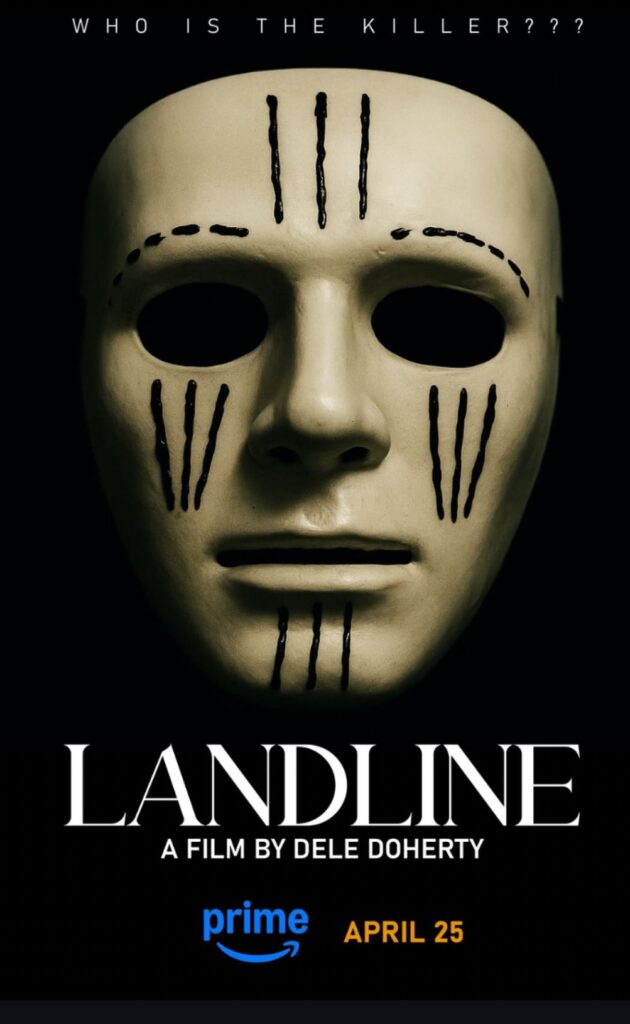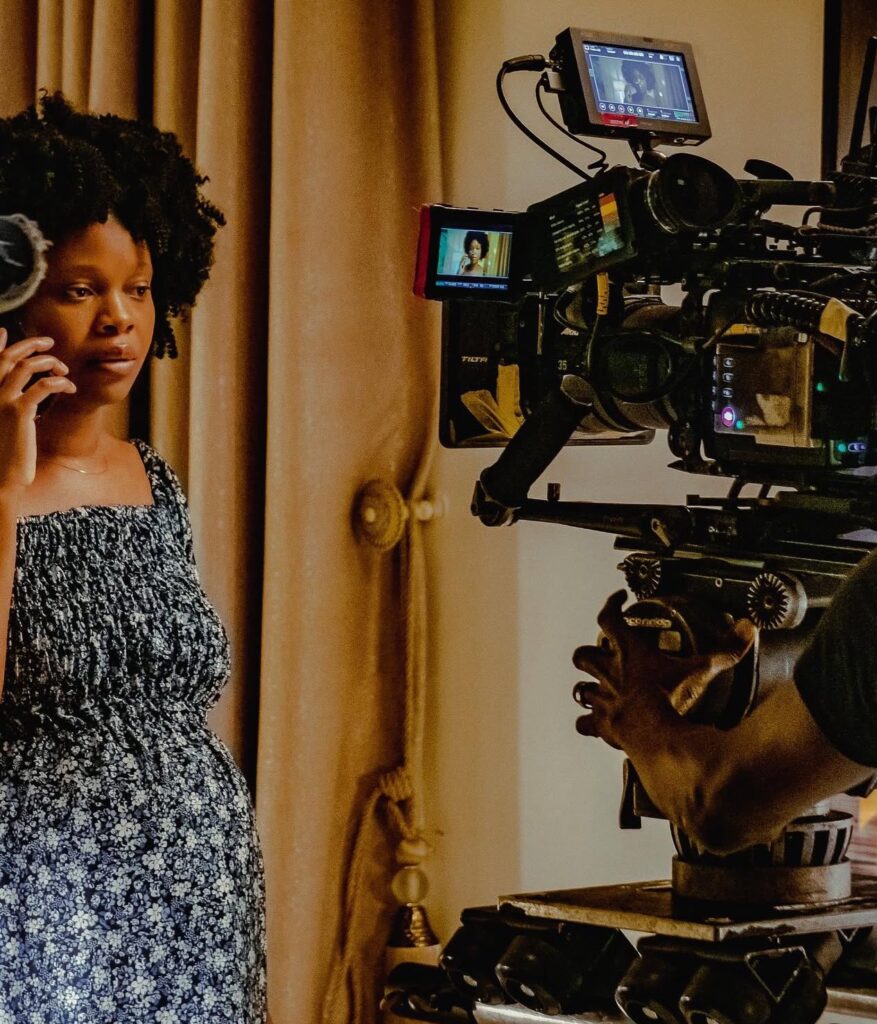Imagine a captivating fusion of elements from the beloved Spider-Man animated multiverse series and the adventurous multiverse of the Marvel Dr. Strange, reimagined within the elements of Nollywood filmmaking, the language, the setting, and more. This intriguing concept finds its expression in Landline, a Nollywood film streaming on Prime. The movie is a labour of love from the talented Dele Doherty, who takes on the roles of writer, director, and producer on the project. It boasts a strong ensemble trio main cast, with Gabriel Afolayan embodying the emotionally charged role of Kola and Zainab Balogun portraying the resilient Shalewa. Supporting performances by Bucci Franklin and other voice actors further enrich the film’s narrative depth.

Landline navigates the complexities of love and desperation through its gripping plot, which revolves around two couples torn apart by an unyielding set of circumstances. Kola, portrayed by Afolayan, finds himself trapped in a tingling predicament where he must repeatedly attempt to rescue his wife, Shalewa, from an unsettling, recurring time loop over the phone. Each of his efforts to break free from this cycle is met with relentless failure, echoing the frustrations of a video game where players must conquer the same level over and over again. The engaging storytelling not only builds suspense but also mirrors the fight against life’s overwhelming obstacles.
One of the film’s most remarkable aspects is its screenplay, featuring sharp dialogue and well-crafted character arcs that draw viewers in. The performances of Afolayan and Balogun shine brightly, filled with emotional depth and gravitas. Afolayan masterfully captures Kola’s emotional turmoil as he grapples with the pain of witnessing his wife’s suffering over and over again. The character’s internal conflict is further emphasised by his background as a trained soldier, whose role is to protect, yet he finds himself trapped in a scenario where his abilities are rendered ineffective.
Meanwhile, Shalewa’s character stands as a beacon of courage, embodying bravery despite the life-threatening situations she faces, which adds layers to the film’s central conflict and engages viewers on an emotional level.

Furthermore, the film’s set design, the brilliant editing and cinematography plays a crucial role in reinforcing the concept of the time loop. The environments are crafted with meticulous attention to detail, creating a sense of a surrounding reset after each failed rescue attempt. This thoughtful approach not only enhances the visual storytelling but also immerses the audience deeper into the psychological landscape of the characters.
However, while Landline excels in many areas, it does have moments where deeper explanations could enrich the narrative. The storytelling leaves some questions unanswered, particularly regarding the origins of the time loop and the rationale behind the seemingly suddenly resurrected landline that grows functional amidst the chaos. These gaps in the narrative can leave viewers grappling with the broader implications of the story.
Despite these narrative holes, Landline stands as a significant contribution to the Nollywood thriller genre. It presents a fresh perspective on the time loop concept, showcasing the potential for innovative storytelling within Nollywood cinema. Overall, Landline is an engaging film that captivates audiences with its unique premise and powerful performances, hinting at a bright future for Nollywood’s exploration of complex themes and inventive narratives.





